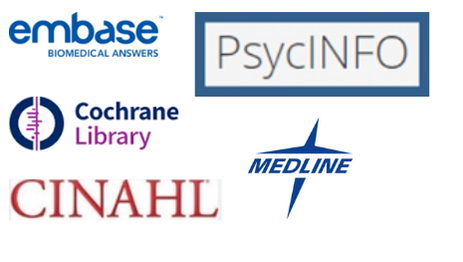Information Skills and Training
We can deliver one to one or group training to help you to find and understand quality information to inform your decision making. Our online guides are available to help you to get the most out of our resources. We also support journal clubs, which are a great way to keep up to date with the latest evidence in your area and keep your critical appraisal skills up to date.
How to bookIf you'd like to book training, please contact: 01790 424642/44; ([email protected]), call in to the Library on D Level or scan the QR code below to complete a training request form. Our training is available via MS Teams and in the library. All training sessions can be tailored for specific departments/ specialities.
|
This session will introduce you to the healthcare resources available through the library and show you how to get the most out of them. We will cover how to formulate a question and what type of evidence will best answer it - increase your knowledge and confidence of accessing quality information at the point of need.
|
|
This session will explore:
• What online databases are and why they are useful • How to identify and access different interfaces such as OVID, EBSCO and ProQuest to access specific healthcare databases specific to your specialty • Using indexing and free text terms • Advanced searching techniques and tips • How to save and record your searches |
|
We offer a range of workshops in support of your academic study. Topics covered include how to structure and find supporting evidence for your dissertation and the different kinds of assignments that you may be asked to undertake as part of an educational course. Please contact us if you would like to access this support and for further details at [email protected] - we offer times around your availability both face to face and via Teams.
|
|
Do you need help with referencing?
Find out more about referencing and reference generators in our online guide. |
What is bias and how does it impact the findings of clinical research? Supporting the need to use the best evidence in decision making, research, and study, this critical appraisal course equips candidates with the basic theory and tools required to understand why and how to appraise a research paper.
What does this course cover?
This session will support you to recognise the importance and value of critically evaluating evidence, and understand the value of a focussed research question in the appraisal process. It supports participants to understand the structure and limitations of the published journal article format and identify the key elements within a journal article. The session will include practical experience of using the CASP appraisal tools to evaluate journal articles.
Who is this course for?
Anyone wishing to develop basic practical skills in evaluating and appraising published research. You may be completely new to critical appraisal, or it could be a refresher from previous study. This course is useful to support those undertaking formal academic study, but also for any NHS staff who want to improve their confidence and ability in evidence based practice, in any professional field.
How to book this course:
Please contact us ([email protected] 01709 427139) if you would like to have this course delivered on a specific date for your department or team.
Can't make the course but want to learn more about Critical Appraisal?
For more resources to support Critical Appraisal, see our Access online training material and read our guide to critical appraisal.
A self directed elearning course covering similar topics to the Critical Appraisal course has been produced by NHS England. Critically Appraising the Evidence Base: Enabling the healthcare workforce to build skills and confidence is available via the eLearning for Healthcare Hub.
This programme aims to support NHS colleagues with understanding the different methods and tools to carry out critical appraisal of research, through 8 bite-sized modules. The sessions are short, with each topic taking approximately 30 minutes to complete.
What does this course cover?
This session will support you to recognise the importance and value of critically evaluating evidence, and understand the value of a focussed research question in the appraisal process. It supports participants to understand the structure and limitations of the published journal article format and identify the key elements within a journal article. The session will include practical experience of using the CASP appraisal tools to evaluate journal articles.
Who is this course for?
Anyone wishing to develop basic practical skills in evaluating and appraising published research. You may be completely new to critical appraisal, or it could be a refresher from previous study. This course is useful to support those undertaking formal academic study, but also for any NHS staff who want to improve their confidence and ability in evidence based practice, in any professional field.
How to book this course:
Please contact us ([email protected] 01709 427139) if you would like to have this course delivered on a specific date for your department or team.
Can't make the course but want to learn more about Critical Appraisal?
For more resources to support Critical Appraisal, see our Access online training material and read our guide to critical appraisal.
A self directed elearning course covering similar topics to the Critical Appraisal course has been produced by NHS England. Critically Appraising the Evidence Base: Enabling the healthcare workforce to build skills and confidence is available via the eLearning for Healthcare Hub.
This programme aims to support NHS colleagues with understanding the different methods and tools to carry out critical appraisal of research, through 8 bite-sized modules. The sessions are short, with each topic taking approximately 30 minutes to complete.
|
Read our online guide to how we can support you through the research and publication process: getting started with research, the publication process, writing for publication; choosing a journal, understanding open access and sharing the knowledge. Please get in touch with us if you require any further information [email protected]
|









